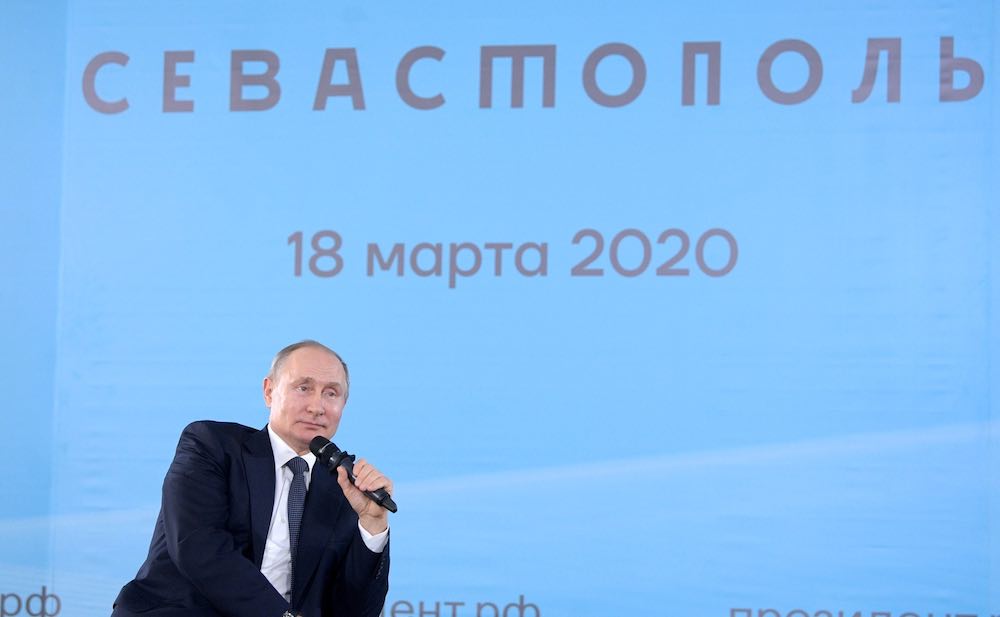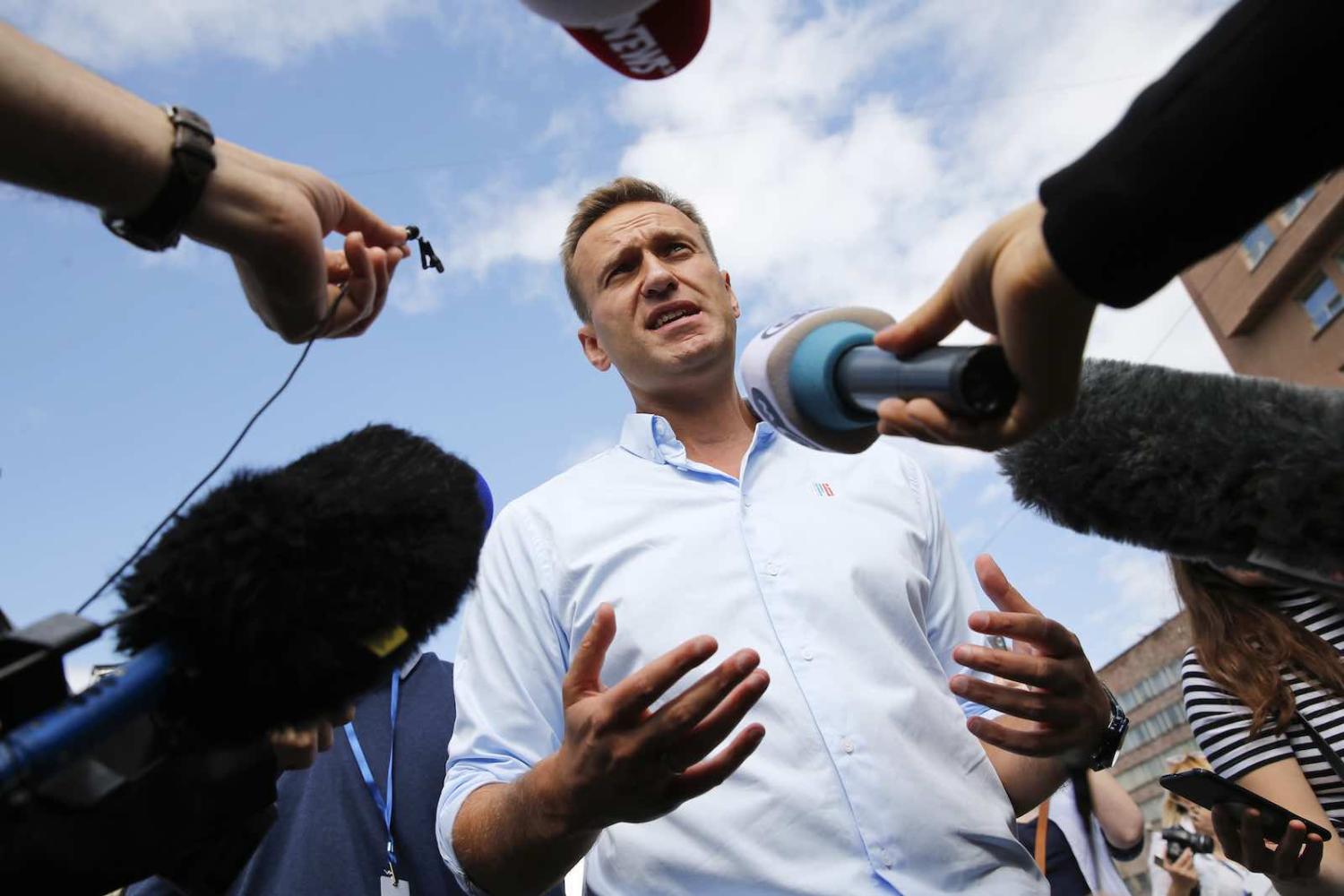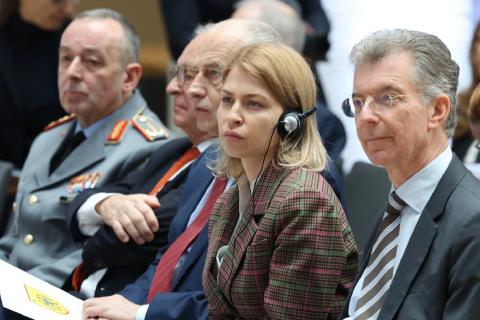European leaders and institutions reacted promptly to the shocking plight of the Russian pro-democracy campaigner Aleksei Navalny, as he lay in a coma in an Omsk hospital and local officials tried to obstruct his evacuation to Germany. The same could not be said of Vladimir Putin. During the two days that Navalny struggled for life in Omsk, the Russian president held a series of meetings, including a video-conference with graduates of a state management college, but had nothing to say about the suspected poisoning of Russia’s best-known opposition politician.
This reticence is not new. For years, Putin has avoided referring to Navalny by name. Asked about this strange phobia, the presidential press secretary explained in 2017: “Well, he doesn’t do it. Yes, we’ve also noticed this. Apparently this is due to his attitude about this person.”
Putin’s trepidation about “he who must not be named” testifies to Navalny’s unique role in Russian politics. Youthful, charismatic, principled, courageous and selfless, Navalny is everything that the Russian president is not. At 44, Navalny belongs to a generation that was shaped less by the trauma of the Soviet collapse than by the chaotic pluralism of Russia’s first experiment with democracy.
As a leading light of the youth opposition subculture of the early 2000s, Navalny thrives in open political contest, unlike Putin, who has never once condescended to debate an opponent. As a blogger and instigator of numerous internet projects, Navalny pioneered the use of the internet to challenge Putin’s increasingly obsolete propaganda apparatus, founded on the television stations that were subjugated during his first term in power.

There are at least three reasons why Navalny matters in today’s Russia. The first is his phenomenal impact as an anti-corruption crusader. In 2008–10, Navalny used shareholder activism and his popular Livejournal blog to expose the mechanisms used by corrupt officials to embezzle billions of dollars from state-controlled corporations. As he expanded his investigations, he coined the phrase “Party of Crooks and Thieves” to describe the ruling party, Edinaya Rossiya (ER). The label was a major factor in the collapse of ER’s vote in the 2011 Duma elections and the mass protests that followed.
Boosted by that upheaval, Navalny attracted a team of brilliant young activists to his Foundation for the Struggle against Corruption (FBK). For nearly a decade, they trained a spotlight on the corruption, the offshore assets, the criminal connections, the palaces and the plutocratic lifestyles of the ruling elite. Members of Putin’s inner circle, government ministers, Duma deputies, security officials, prosecutors and regime propagandists have all seen their reputations tarnished and their authority weakened by stylishly produced FBK investigations on YouTube. The most celebrated was a 2017 exposé of the network of charities that funded the palaces, estates and yachts of then-premier Dmitrii Medvedev, which has been viewed 35 million times and triggered nationwide protests.
Putin’s trepidation about “he who must not be named” testifies to Navalny’s unique role in Russian politics.
A second reason Navalny matters is his ability to bridge the acrimonious divide separating liberals and nationalists. Although his activism began in the left-liberal Yabloko Party, Navalny is treated seriously by many nationalists. In 2007, he was an instigator of the first serious effort to build a populist, pro-democracy coalition of liberals and nationalists. As he carved out a niche on the nationalist flank, he made some ugly appeals to ethnic prejudice, but he also spoke out for tolerance.
In a speech to a nationalist rally in 2011, he challenged his audience to empathise with the plight of ordinary people in the predominantly Muslim republics of Russia’s northern Caucasus. More than anything else, Navalny’s presence at the forefront of the opposition has made it conceivable for Russian nationalists to join their ideological adversaries in anti-Putin protests. And their readiness to do so has been strengthened by the FBK’s unrelenting exposes of the offshore wealth and cosmopolitan lifestyles of the ruling elite.
The third reason Navalny matters is that he has masterminded a real challenge to the stability of Russia’s competitive authoritarian system, which relies on heavily manipulated elections to legitimise Putin’s rule. It was Navalny who proposed the strategy of voting for anyone but the Party of Crooks and Thieves in the December 2011 elections. The resulting collapse of the ruling party’s vote led directly to the massive electoral fraud that precipitated the mass protests of 2011–12.
Navalny’s own electoral potential was demonstrated in 2013, when he was released from jail to compete in Moscow’s mayoral election. Despite a smear campaign in the Kremlin-aligned media and the disruption of his campaign by the security agencies, he won 27% of the vote. His presidential ambitions have been thwarted by his 2013 criminal conviction on fabricated charges, but he has used his national network of activists to promote a sophisticated strategy of “intelligent voting”, encouraging the public to vote for candidates who had the best chance of defeating the ruling party. One of the many successes of this strategy in the 2019 regional elections was Khabarovsk, which is now a hotbed of anti-Kremlin protest.
If the Kremlin has cause to dread Navalny, the rest of the world should recognise him as the embodiment of the possibility of a peaceful, democratic Russia that is a partner, not an adversary, of the West. Navalny is a living refutation of the argument, advanced by numerous experts and commentators, that Putin’s aggression on the international stage is nothing but a rational defence of Russia’s national interests.
Despite his position as a nationalist, Navalny spoke out against war with Ukraine. He has argued insistently that the Putin regime’s overriding motive for unleashing the conflict was not concern for compatriots, but fear of the contagion of anti-authoritarian revolution. Navalny has also exposed the hypocrisy and the corruption of the Kremlin’s anti-Western propagandists. In the process, Navalny has reminded us of Nobel Peace Prize laureate Andrei Sakharov’s insight about the connection between respect for human rights and international peace. If a democratic Russia emerges one day from the wreckage of Putinism, there is no doubt that Navalny will be honoured as its prophet.

